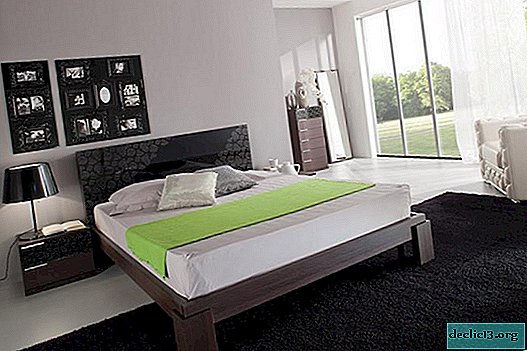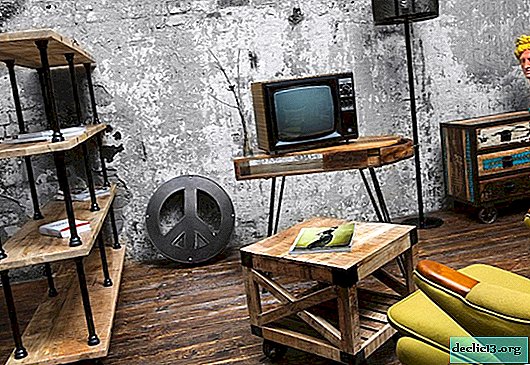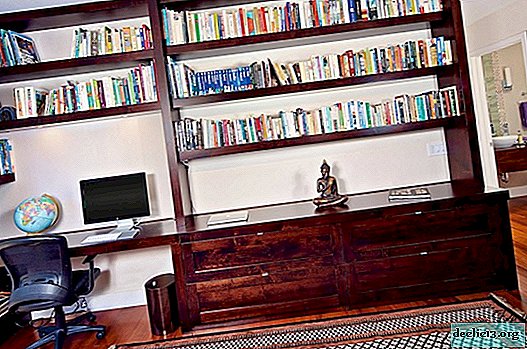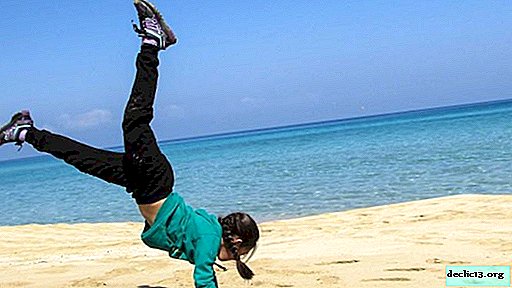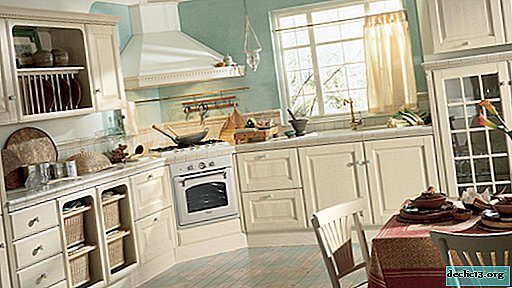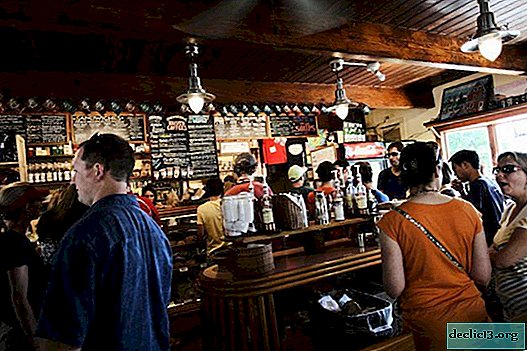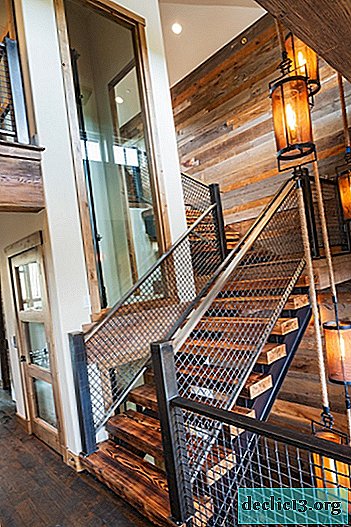Munich metro: timetable, hours and how to use
Munich Metro is a well-coordinated system with which any resident or visitor of the city can get to their destination without any extra transfers.

General information
Many tourists doubt whether there is a metro in Munich. Yes, yes what! The underground is the basis of the transport system of the Bavarian capital and the third subway in Germany after Berlin (1902) and Hamburg (1912).
The Munich metro is equipped with the latest technology, and is considered one of the best in Europe: at each station there is an elevator, escalators, electronic displays where you can see the arrival time of the nearest train, and at the entrance there is a bicycle parking. In addition, in the underground tunnels it catches well mobile communication and there is Internet.
The construction of the Munich metro began in 1965, which is quite late when compared with other European cities. The first 13 stations (their total length is 12 km) were opened in 1971. In 1972, the second line of the Munich Underground began to operate. In the same year (in honor of the opening of the Olympic Games), the first Munich city train was launched.
It is interesting that the first attempts to build a metro in Munich were made back in 1906 - schemes, maps and models of future tunnels and platforms were created, but due to lack of funds the project was never implemented. The only thing they could do was dig up several tunnels that were used as bomb shelters during the Second World War.

Today, there are 100 metro stations in the Munich subway, and the total length of the tracks reaches 103.1 km. Interestingly, the density of platforms in the Munich Underground (per 1000 inhabitants) is one of the highest in the world.
However, the Munich metro is not only comfortable: the design of the stations deserves special attention. The best European designers worked on the interior of each platform. For example, on the Westfriedhof platform, huge chandelier-balls hang from the ceiling, the walls of Candidplatz are decorated with colorful tiles and maps, and the posts on Munich's Freichait are illuminated with blue lights.
As for trains, at the moment 3 types of trains are used: the old MAN, the relatively new DWA and the modern Siemens electric train.
Metro map
If you look at the map of the Munich metro, you can see that it consists of 8 lines:

- The first U1 line (Olympia-Einkaufszentrum) connects the western and southern parts of the city. Consists of 15 stations. The total length is 12 km.
- The second line U2 (Feldmoching-Messestadt Ost) is the busiest, as it connects the West and East of Munich. The number of platforms is 27. Travel time from the first to the final stop is 40 minutes.
- The third branch U3 (Moosach-Fürstenried West) starts in the northwestern part of the scheme and goes to the southern outskirts of Munich. Consists of 25 stations. The required travel time is 36 minutes.
- The fourth branch of U4 (Westendstraße-Arabellapark) is quite short and least loaded. The total number of stations in the scheme is 13. The length of the tracks is 9 km.
- The fifth line U5 (Laimer Platz-Neuperlach Süd S-Bahn) connects the western and southern parts of the city. It has 18 stations.
- The sixth branch U6 (Garching-Forschungszentrum-Klinikum Großhadern) is popular with residents of the northern part of Munich and the southern outskirts of the city. This is the longest metro line in Munich. The number of stations on the scheme is 26, 3 of which are located outside the Bavarian capital. The total length of the tracks is 27 km.
- The seventh line U7 (Westfriedhof-Zentrum) is one of two additional branches of the Munich metro that operates only on weekdays during peak hours (from 7.00 to 9.00 and from 15.00 to 19.00). Consists of 17 stations.
- The eighth line of the U8 (Olympiazentrum-Sendlinger Tor) is also optional. It works only on Saturday from 11.00 to 20.00. The number of stations in the diagram is 9.
Of the 100 Munich metro stations in the diagram, only 6 are terrestrial - “Southern Neuperlach” (on the flyover), “Student campus”, “Freiman”, “Pine garden”, “Frötmannning”, “Garching-Hochbrook”.
Also from the metro stations “Marienplatz”, “Olympic Park”, “Hauptbahnhof”, “Karlplatz” you can get into the halls of shopping centers.

Hours and Intervals
The Munich subway is open daily from 4.00 to 01.00 (on weekends it closes an hour later). The interval of movement at rush hour is 5 minutes, the rest of the time - at least once every 10 minutes.
Thus, the operating time of the metro in Munich is very convenient, and even returning home late at night, you can easily reach your destination. It’s definitely not worth worrying about how long the metro operates in Munich.
Tariff zones and fare
Like Berlin, Munich is divided into tariff zones (see diagram), the fare for which varies greatly:

- White or Inner Zone (Innerraum). This is the central part of the city, which is most interesting for tourists, since it is here that the main attractions are located: the English Park, Karlsplatz, the BMW Museum and the Olympic Park.
- White + green zones (München XXL). It includes the central part of Munich + some sleeping areas and neighboring small towns (Dachau, Schleissheim, Starnberg).
- Green + yellow + red zones (Außenraum). Includes all suburbs.
- White + green + yellow + red zones (Gesamtnetz). These are absolutely all parts of the city and its suburbs, which also include the airport.
In Munich, you can purchase tickets and travel tickets for a different number of trips. Please note that the prices below are relevant not only for the metro, but for all public transport.
One trip ticket (Euro)| Zone | For adult | For teenagers (6-14 years old) |
|---|---|---|
| Innerraum | 2.70 | 1.30 |
| München xxl | 5.40 | 1.30 |
| Außenraum | 8.10 | 1.30 |
| Gesamtnetz | 10.50 | 1.30 |

A one-trip ticket will be convenient for those who need to visit the part of the city that is at a decent distance. Please note that in the White Zone the ticket is valid for 3 hours, and in the rest - 4.
If you need to drive just a few stops, pay attention to the ticket for a short trip (Kurzstrecke). Its cost in the Munich metro will be 1.40 euros for all zones, and you can drive no more than 4 stations.
| Number of strips | Adult (Euro) | For young people | For teenager |
|---|---|---|---|
| 1 | - | 1,25 | 1,25 |
| 2 | 2,60 | 2,50 | - |
| 3 | - | 3,75 | - |
| 4 | 5,20 | 5,00 | - |
| 6 | 7,80 | - | - |
| 8 | 10,40 | - | - |

The “striped” ticket works as follows. The number of lanes used directly depends on how many stops you are going to drive. So, 4 standard stops in a bus, tram or 2 metro stations are equal to one strip.
The cost of the card is the same in all areas. If you purchased this type of ticket, it is important to remember that you must attach each of the strips to the composter.
Compare accommodation prices using this form
| Zone | 1 day (euro) | 3 days |
|---|---|---|
| Innerraum | 6,20 | 15,50 |
| München xxl | 8,30 | - |
| Außenraum | 6,20 | - |
| Gesamtnetz | 12,00 | - |
The Tageskarte Pass can be purchased both for one person and for a group of people (up to 5 passengers). This type of ticket will be convenient for those tourists who plan to visit the main attractions in Munich and the suburbs in a few days.
| Territory | 1 day (euro) | 3 days |
|---|---|---|
| Innerraum | 11,70 | 27,10 |
| München xxl | 14,80 | - |
| Außenraum | 11,70 | - |
| Gesamtnetz | 22,30 | - |
In addition to traditional travel cards, there is a ticket for those who just need to get to the airport. Its cost for one person is 13 euros. For a group (up to 5 people) - 24.
This ticket is valid from the moment of first use until 6 am the next day. Airport-City-Day-Ticket can be purchased at the box office of railway stations or online at www.OnlineTicket.com
Children's card for a day costs 3.20 euros. You can use the ticket from the moment of the first composting until 6 am the next day.
Please note that children under 6 years old travel by car for free.
Bavarian ticket (Euro)
| Number of passengers | Day | Night |
|---|---|---|
| 1 | 25 | 23 |
| 2 | 32 | 27 |
| 3 | 39 | 31 |
| 4 | 46 | 35 |
| 5 | 53 | 39 |
Also, tourists should pay attention to the Bavarian map, which, in addition to free travel in the city, gives the right to travel to neighboring cities and castle complexes without payment (you can even get to Salzburg, Austria!). Valid on all types of public transport.
If you have a Bavarian card, an adult can take a child under 14 years old free of charge. This condition does not apply if there are two adults.

If you come to Munich to see the sights and get acquainted with the history of the city, pay attention to the München Card. This card will provide an opportunity to visit a number of museums, cafes, theaters and galleries with a significant discount, and travel in public transport will be completely free.
You can purchase a card online at www.OnlineTicket.com
| Number of days | Innerraum Zone | Gesamtnetz Zone |
|---|---|---|
| 1 | 9.90 | 15.90 |
| 2 | 15.90 | 26.90 |
| 3 | 22.90 | 39.90 |
| 4 | 27.90 | 49.90 |
| 5 | 33.90 | 54.90 |
Prices on the page are for July 2019.
How to use the subway
In order to use the metro in Munich without difficulty and unpleasant consequences, you need to know a few simple rules.
Turnstiles
As in most European cities, there are no turnstiles in the metro of the Bavarian capital. There are only special composters that are installed on the platforms themselves. As a rule, they are blue. Before boarding the train you need to validate the ticket (if you have a Munich card, you don’t need to do anything), otherwise, according to the traditional scheme, the controllers will be forced to write you a fine.
How to activate a ticketThe ticket is activated (i.e. the trip will be paid) after you attach it to the composter. This can be done on platforms in the subway or in the salons of buses and trams.
Where to buy a ticket
Travel tickets and cards can be purchased in red vending machines with the inscription Fahrkarten, which are installed near the entrances to the metro, close to public transport and train stations. It is interesting that you can also purchase a ticket (and also take the metro scheme for free) in almost any hotel or hotel.
FinesGermany takes the issue of stowaways very seriously, because a passenger who does not buy a ticket deceives not only the state, but also other Germans. Therefore, in addition to a fine of 40 euros, an administrative case is initiated for the “hare”. Foreigners should keep in mind that if you leave Germany and do not pay the fine in a two-week period, there is a possibility that next time you will simply be denied a visa.
Official siteOn the official website of public transport in Munich (www.Mvv-muenchen.de) you can find all the necessary information about prices, timetables and public transport schemes. You can also read more about the types of tickets and see a map of the tariff zones.
Munich Metro is a convenient and fast means of transportation.
All about Munich transport:

